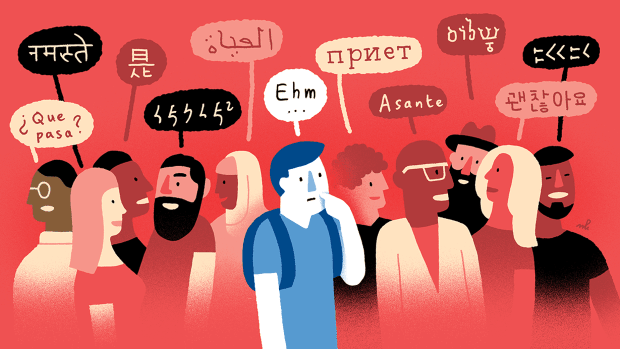
Minister further tightens new Internationalisation Act
In a parliamentary letter, Minister Bruins (OCW) further tightened his proposed Internationalisation Act, which has been widely criticised. He also wants to increase the so-called ‘stay opportunity’ of internationals.
With this new law the minister wants to ensure that education remains accessible, Dutch language skills improve and internationals’ chance of staying is increased. Minister Bruins writes this in a letter to the House of Representatives.
Under the new law, Dutch bachelor’s programmes must offer at least two-thirds of the curriculum in Dutch. A maximum of one third is allowed in another language, to give room for e.g. (guest) lectures by international lecturers and researchers. To offer a bachelor’s programme as a whole in another language, permission must be requested from a committee and the minister through the so-called Test foreign-language education (TAO).
Tightening up
Based on four grounds, a course may be granted permission. These may include, for instance, study programmes in shrinkage and border regions, study programmes for shortage sectors in the labour market, a unique study programme that is only offered in one place, or if the study programme has an inseparable international character. In the (Dutch) parliamentary letter, Bruins reveals that he will fine-tune these last two criteria more sharply than the previous cabinet, which initiated the law, to prevent exceptions from becoming the rule and to preserve Dutch.
Dutch the norm
“In recent years, we have seen international student numbers increase, resulting in a severe shortage of student housing, full lecture halls and the Dutch language being under pressure. That calls for action. I want to make the Dutch language the norm again, so that language skills improve and the international talent that comes here to study then also stays to contribute to our economy and society,” Bruins said in the letter. In any case, institutions can already set a separate numerus fixus for foreign-language programmes of a certain study programme as from academic year 2025/2026. In addition, Bruins wants to make administrative agreements with educational institutions on how they will ensure that the international intake is limited. This will give substance to the cutback.\
Increase chances for internationals to stay
The minister stressed that even with the restrictive measures on study migration, education and science is and will remain an international activity. Bruins: “We see that with major shortages on the labour market, attracting talented international students, especially for shortage sectors and in shrinking or border regions, remains necessary. Also to maintain the level of education in the region. With this approach, this remains possible. We want to attract the right international students here and, with more Dutch language skills, increase the stay probability of international students so that they will work here after their studies.” The stay probability for international students is 25% on average after five years, according to the Ministry of Education, Culture and Science. For EEA students, who can study in the Netherlands for the same tuition fees as Dutch students, it is only 19%. Research by the in internalisation office Nuffic and others shows that language requirements at work and in society are currently a major barrier.
Blunt axe
Caspar van den Berg, president Universities of the Netherlands (UNL) is extremely dissatisfied with the parliamentary letter. “The bill is called ‘Internationalisation in Balance’, but this cabinet is hacking away at universities and colleges of higher education with a blunt axe, including a €293 million cut in international student intake. This approach will impoverish education, we will lose important scientific talent and we will also scare away international students, whom we desperately need in our country.”
Universities earlier this year proposed a different approach to better manage the number of internationals. 'In this, universities and study programmes together take targeted measures so that the Netherlands does not lose its top position as a knowledge country, while controlling the intake and increasing the share of Dutch in academic education.
New review Council of State
According to UNL, the minister’s austerity measures harm the international character of higher education. “It will probably be accompanied by the forced closure of study programmes, and with major consequences for the quality of Dutch scientific research,” says Van den Berg. “In addition, it remains to be seen whether this restriction of international intake is legally feasible, given the European treaties on free movement of persons.” The minister wants to tighten the criteria of the Test foreign-language education, which means that the elaboration of the bill requires a new review by the Council of State, according to UNL.

